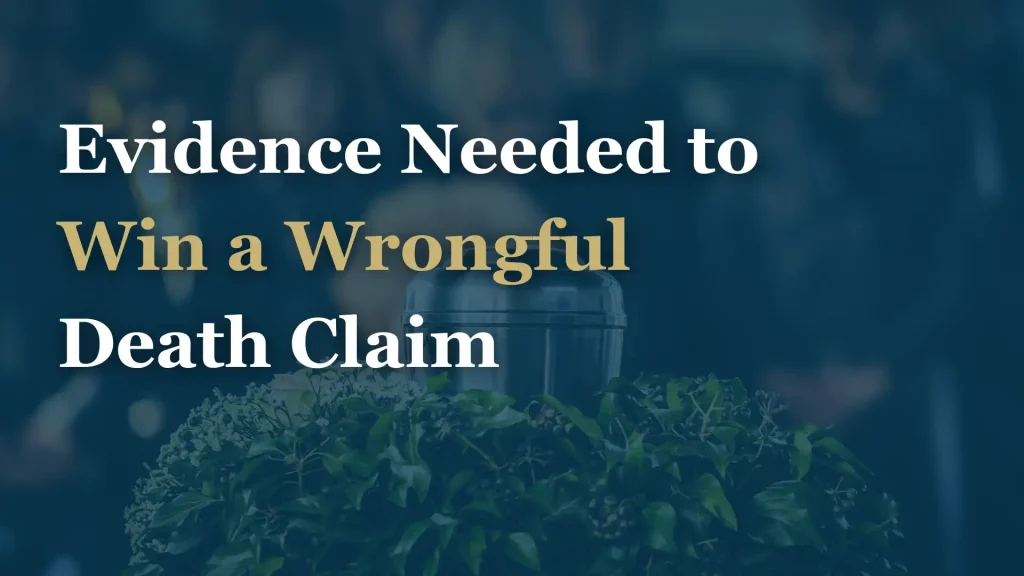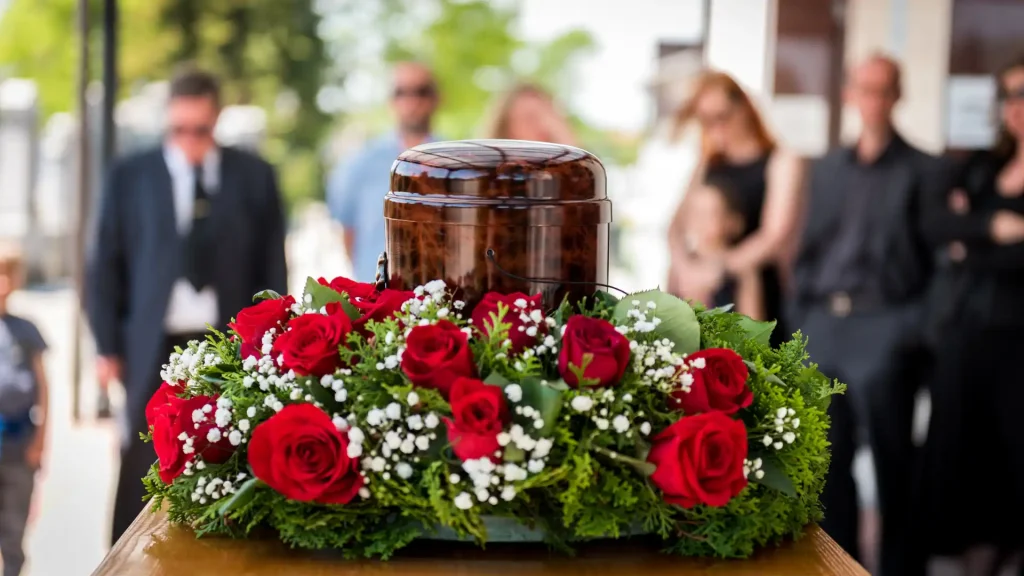
Losing someone you love because of someone else’s actions leaves a hole that never fully heals. However, when their death happens because another person acts negligently, the law allows you to file a wrongful death claim. This claim helps hold the at-fault party accountable and helps your family recover money for your loss. To win, though, you need strong proof. Without clear facts, the case may fall apart. The court needs to see that your claim has support and that someone’s choices led to the death of your loved one, which is why strong wrongful death claim evidence is essential to proving fault and securing justice.
The Burden of Proof in Wrongful Death Cases
In civil cases like wrongful death, you don’t need to prove everything beyond a reasonable doubt as you would in a criminal case. However, understanding what evidence is crucial in a wrongful death case can make all the difference in building a strong claim. Instead, the law uses a standard called preponderance of the evidence. That means your side must show that it’s more likely than not that the defendant’s actions caused your loved one’s death. To win a wrongful death case based on a theory of negligence, you must show four things:
- Duty – The person had a legal duty to act with care not to harm others
- Breach – They failed to meet that duty
- Causation – Their actions caused the death
- Damages – The family suffered real loss
These four parts make up the structure of your negligence-based case. Your lawyer must build each piece with the right kind of proof.
Key Types of Evidence in Wrongful Death Claims
No single piece of evidence wins the case. You need to collect many pieces that fit together. The more support you gather, the stronger your case becomes.
Medical Records and Autopsy Reports
Doctors and coroners create records that help explain what happened medically. Medical records show the care your loved one received before they passed. An autopsy report may explain the exact cause of death and link it to the accident or act of negligence.
Accident Reports and Police Documentation
If your loved one died in a car crash or other reported accident, official records matter. A police or accident report may include diagrams, statements, and evidence collected at the scene. These reports can support your claims about how the death occurred.
Surveillance Footage or Dashcam Video
Video can make your case stronger. If cameras catch the incident, that footage becomes valuable proof. It can show what happened in real time, without bias or emotion.
Eyewitness Statements
People who saw the event can help confirm your side of the story. Eyewitness testimony supports your timeline and adds human detail to the facts. Depending on how the death happened, these statements may come from drivers, bystanders, or coworkers.
Physical Evidence from the Scene
Damaged vehicles, broken tools, or spilled liquids may help show how someone’s actions or inaction caused the accident. Lawyers and investigators use these details to build a complete picture of the event.
How Evidence Helps Prove What Compensation You’re Owed
Proving what caused the death is only one part. You also need to show how your family suffered because of the loss.
Financial Losses
You can recover money for bills and financial harm. That includes:
- Medical costs before death
- Funeral and burial expenses
- Lost wages and benefits your loved one would have earned
You may need financial loss documentation like tax returns, pay stubs, or employment records to show the impact.
Intangible Losses
These losses are more complex to measure, but still significant. You may recover money for:
- Loss of companionship
- Pain and suffering before death
- Emotional suffering for family members
Journals, therapy records, and personal statements can help prove these losses.
Support from Experts
Sometimes you need help to show the whole picture. A doctor may explain how long your loved one suffered. An economist may calculate their future lost income. A therapist may address the emotional impact on the surviving family members. All of this adds strength to your claim.
Role of Expert Witnesses in Wrongful Death Cases
In many cases, expert testimony helps explain complicated issues. These witnesses bring knowledge that allows judges and jurors to understand the full weight of your loss.
- Medical Experts – A medical expert may explain how the care given, or not given, led to your loved one’s death. They help prove causation and show whether doctors or nurses met the applicable standard of care.
- Economists – An economist can review your loved one’s job, salary, and work life to estimate what they would have earned over their lifetime. That information supports claims for financial loss documentation and future support.
- Mental Health Professionals – Grief leaves emotional wounds that don’t always show on the surface. A mental health professional may explain the mental and emotional harm the loss caused to children, spouses, or other close family members.
- Accident Reconstructionists—When a death occurs in a crash or similar situation, an accident reconstruction expert may intervene. They analyze the scene, speed, vehicle positions, and other factors to help prove fault.
How to Preserve and Gather Crucial Evidence
 After a sudden death, you may feel shocked and overwhelmed. But saving evidence right away can make a big difference later. The sooner your lawyer starts working on your case, the better your chance of collecting strong proof is.
After a sudden death, you may feel shocked and overwhelmed. But saving evidence right away can make a big difference later. The sooner your lawyer starts working on your case, the better your chance of collecting strong proof is.
What to Do After a Death
Write down everything you remember about what happened. Save clothing, broken devices, or any other physical items. Take photos if possible. Gather all paperwork, including receipts, text messages, emails, and records related to the death.
Why Records Matter
Keep medical records, bills, letters from insurance companies, and funeral expenses in one place. Store phone call logs and keep track of any conversations related to the case. All of this may support your claim later.
Your Attorney’s Role
Your lawyer leads the investigation. They know how to request records, talk to witnesses, and protect important documents. They may act quickly to stop companies or people from destroying time-sensitive evidence.
Contact a Wrongful Death Attorney to Begin Building Your Case
Every wrongful death case in Watertown starts with one goal, and that is to get justice for your loved one. You deserve answers, accountability, and fair compensation for your loss. However, strong evidence makes all the difference. Our team is here to help you understand your rights and take the first step toward securing the necessary benefits.
Call Turbak Law Office, P.C. at 605-886-8361 for a free consultation.
Related Post
Subrogation Claims Defined and Explained
What Should You Do When You Have an Insurance Claim for Storm Damage?